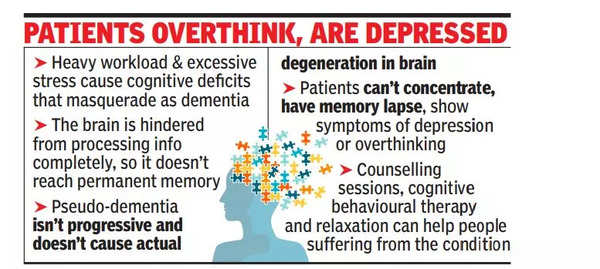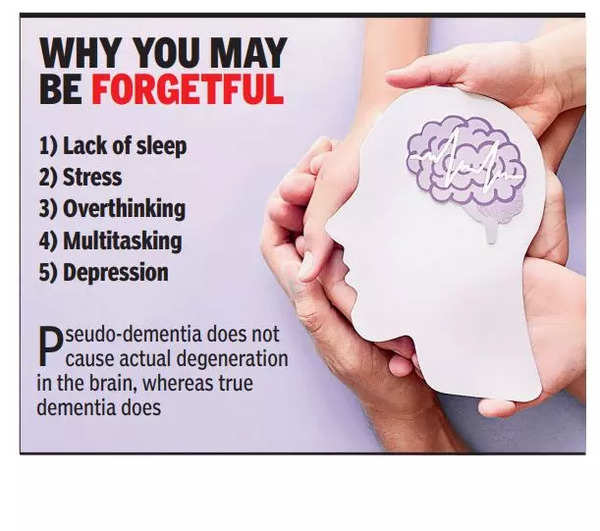[ad_1]
According to doctors, in this condition, depression or excessive stress causes cognitive deficits that masquerade as dementia. However, unlike dementia, pseudo-dementia is not progressive and doesn’t cause actual degeneration in the brain. Its patients often experience difficulties in concentration, memory lapse and show symptoms of depression or overthinking.
Dr Praveen Gupta, director of neurology, Fortis Memorial Research Institute, Gurgaon, said that “cases of significant forgetfulness among the younger population are rising.”

Here are 3 simple ways to beat ‘pseudo dementia’
We get 5-10 cases in a month where patients below 50 years of age seek help for such conditions. Factors like excess career-related stress, high workload and worries about social status put pressure on the brain, which hinders it from processing the information completely, due to which it does not reach permanent memory. Moreover, processing too much information at the same time, in other words, multitasking, is also leading to loss of focus,” Dr Gupta said.
He explained that memory works in three parts – giving attention to something, receiving it and then retaining it. Every step requires some effort from the brain, but high levels of stress can negatively affect its functions.
“Once people are aware of the reasons behind it, they can keep it in check by putting in a little effort. Consciously trying to focus or taking steps to treat depression can improve the condition and reduce anxiety,” he said.

Dr Arti Anand, senior consultant, department of clinical psychology, Sir Ganga Ram Hospital, told TOI she gets 10-12 such patients in a month.
“Anxiety develops due to excessive work pressure, negative thinking, overthinking, multitasking and interpersonal problems. These are inter-related — when you are anxious, you aren’t able to perform too many tasks. Your memory, attention span and concentration go down, which affects day-to-day functioning,” she said.
Counselling sessions, cognitive behavioural therapy and relaxation can help people suffering from the condition, she added.
According to Dr Vipul Rastogi, senior consultant neuropsychiatrist at Medanta Hospital, “More and more younger people are struggling to manage their life stress — be it personal, professional or financial. It is quite concerning, but should be preventable and manageable with adequate information and awareness.”
Hidden dangers of excessive milk consumption
[ad_2]
Source link





Join The Discussion